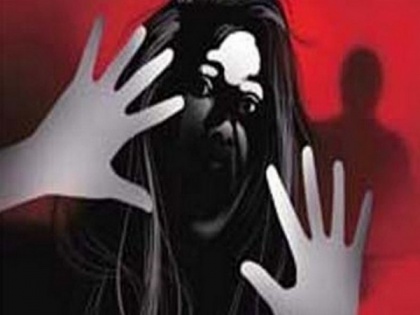Calling India unsafe for women appears to be incorrect: IIM Rohtak director
By ANI | Published: October 9, 2020 07:34 PM2020-10-09T19:34:36+5:302020-10-09T20:25:02+5:30
The Hathras incident has drawn attention to violence against women, but calling India unsafe for women appears to be incorrect, and a comparative study of violence in different countries is needed, according to IIM Rohtak director Dheeraj Sharma.

Calling India unsafe for women appears to be incorrect: IIM Rohtak director
The Hathras incident has drawn attention to violence against women, but calling India unsafe for women appears to be incorrect, and a comparative study of violence in different countries is needed, according to IIM Rohtak director Dheeraj Sharma.
Dheeraj Sharma, IIM Rohtak Director, said, "The recent case of violence against women in the small town (Hathras) of India has brought a great deal of attention to the scale of violence against women in India. The incident is undeniably unfortunate and calls for a probe; however, calling India an 'unsafe country for women' appear to be incorrect."
"To accurately understand the situation in India, one must engage in a comparative study to ascertain where India stands vis-a-vis other developing and developed countries as far as a crime against women is concerned. One must recognise that high crime against women reflects a poor standard of living in any country," he wrote in an article for EU Reporter, a Brussels-based European multimedia news platform.
The IIM director further said that the research team at IIM Rohtak "endeavored to study" data on the incidence of rapes across various countries and reviewed how India fares in managing crime against women.
"The research team examined the reasons for the under-reporting of rapes in a developed country. Finally, the research team examined the reasons for the under-reporting of cases in India," he added.
The rape rate is calculated as the number of rape incidents per 100,000 population. The data of rape rate in G-8 countries, other developed and developing countries shows that South Africa has the highest rape rate 132.4 while India is third last on the list with a rape rate of 1.8.
"While the rape rate in India is quite low (1.8) compared to other developed and developing countries. It must be noted that the highest rape rate exists in the United States has the highest rape rate of 27.3. However, one can argue that the rape rate in India may be low on account of underreporting," Sharma wrote.
"However, one can argue that the rape rate in India may be low on account of underreporting. Hence, it is important to understand the degree of under-reporting and what are the main reasons for under-reporting," he added.
"Consequently, we attempted to compare the Indian data with US data. According to Criminal Justice System report by RAINN ((Rape, Abuse, & Incest National Network), the rape cases go unreported due to victim shaming, fear of reprisal, fear of family knowing, cases not being taken seriously by law enforcement, and possible lack of prosecution for the perpetrator."
According to the data, only 9 per cent of rapists in the US get prosecuted and only 3 to 6 per cent of rapists will spend a day in prison. In India, the conviction rate is around 27%.
In order to study the Indian context, a survey was conducted across 1004 women in India. "All the women surveyed were from cities and were in the age group of 21 to 35 years. 74.5 per cent of the women stated that they would report any sexual violence immediately to the authorities.
"Next, the one who stated that they would not report such incidents were asked as what they believe would be the reasons for not reporting sexual violence to law and enforcement. Two interesting findings of the survey are that nearly 68 per cent of the women stated that they would report the matter to a non-law-enforcement official (Friend/Family/Relative/Acquaintance/Ombudsman)," he wrote.
Further, more nearly 49% of the reported self-blame by stating that one should not engage with a stranger and apparent deviants. Additionally, 21.4 indicated that they would not get family support to follow up with the reporting of the incident, he added.
( With inputs from ANI )
Disclaimer: This post has been auto-published from an agency feed without any modifications to the text and has not been reviewed by an editor
Open in app